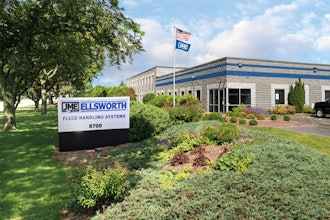
Deciding to keep or sell the family business is a difficult decision every business owner must face.
Below, four business owners share their personal experiences — revealing what led them to part ways with their family businesses.
Their advice could aid you when making those difficult business decisions, and help you come to a final conclusion you feel confident and comfortable with.
Between Generational Ownership
Adam Zima was the owner of Capitol District Supply, a kitchen and bath supply company with three locations in New York. Capitol District Supply had been family-owned and operated since 1945. Adam Zima was the third generation to run the company.
Adam said that the driving factor behind the decision to sell Capitol District Supply was the company’s unique position between generational ownership. With multiple families holding ownership interests – each at different stages of their lives and careers – it became apparent that the timing presented the perfect opportunity to carefully evaluate and pursue the most suitable options for a seamless transition of the business. Consequently, Adam met with an outside consultant and began exploring a variety of options, including internal and external sales.
Thanks to outside help, the Capitol District Supply family was well-prepared to take their business to the market and explore the array of offers that awaited them. After carefully considering multiple compelling proposals from external companies, they opted for a hybrid approach. This involved selling the business operations to an external company while smoothly transitioning the real estate holdings internally within the family.
For others looking to sell, Adam recommends that companies with multi-generational ownership bring advisors into their company sooner rather than later.
“Once we partnered with an expert, it was apparent we could have benefited from advice and planning many years before we started our process.”
Exploring Your Options
Roy Williams was the owner of Williams Wholesale Supply, an electrical and plumbing distributor located in Cookeville, Tennessee. Williams Wholesale Supply had been family-owned and operated since 1939, spanning four generations. Roy was the third generation and his two sons represent the fourth generation.
After speaking with Roy, it became evident that the decision to sell the family business was not driven by a single factor. When the time came to consider succession planning, Roy and his sons recognized that to continue their business’ expansion, they needed to assess the market’s potential. However, this endeavor required financial resources that were currently unavailable to them. Consequently, Roy took the initiative to reach out to an expert in succession planning to explore their options.
Roy was presented with the idea of going to the market and running a competitive process, but one particular buyer, Winsupply, stood out to him and his sons. The reasoning behind their choice was straightforward. As Roy said, “They had no negatives.” Winsupply proved capable of fulfilling all the essential requirements and demands of the Williams family: not only did they ensure the welfare of the company’s employees, but they also allowed Roy’s sons to retain a portion of the family enterprise while providing them the freedom to venture into new industries should they choose to do so.
When considering the sale of your business, Roy offers valuable advice: “It’s crucial to look beyond the highest bid. Instead, focus on finding a buyer who will embrace and uphold your business philosophies, ensuring the continuation of your family’s values.”
Nearing Retirement Age and Loss of Business Allure
Lee Steinhouse was the owner of Steinhouse Supply Co., a prominent wholesale plumbing distributor situated in Nashville. Steinhouse Supply was initially established by Lee’s father and later handed down to Lee and his two brothers. Following their college graduation, Lee and his siblings dedicated themselves to the growth of Steinhouse until they sold it in 2019.
After speaking with Lee, the reasoning behind selling their business became clear. Lee expressed how he and his brothers gradually lost their motivation. Approaching retirement, they grew weary of the never-ending competition with regional and national chains. Once accustomed to working late until 7 or 8 o’clock in the evening, they eventually found themselves leaving by 4 or 5 in the afternoon. Lee openly admitted, “Running the business had lost its allure.” Recognizing the need for an exit strategy, Lee and his brothers understood the urgency to act before it was too late, so they reached out to an expert.
Lee explains how consulting with an outside expert played a pivotal role in attracting all potential buyers. In addition, finding a consultant with an extensive background in the plumbing industry proved to be useful, and, as Lee said, “surpassed the assistance that any local M&A company could offer.” This led to Steinhouse Supply Co. being acquired by one of the nation’s leading distributors, Southern Pipe and Supply.
Following the sale of Steinhouse Supply, Lee offered valuable advice to business owners looking to sell: “It is never too early to start planning for the future.” Lee emphasized the importance of aligning all aspects, including seamless management succession — and departing on a high note for the new owners.
Lack of Future Management
Robert Berman was the owner of Avon Supply Co., a plumbing and heating wholesale distributor located in Wakefield, Massachusetts. Avon Supply had been family-owned and operated for 63 years. Bob was the second-generation owner, following in his late father’s footsteps.
Bob explained how the main factor driving his decision to sell was the lack of future management. Bob ran the business for years with excellent performance and profitability, and although Bob was in good health, he realized that if he became ill, the business would not run itself. He looked to his two daughters as potential successors, but neither were brought up in the business as kids and their interests lay elsewhere. He asked himself if rebuilding the business was an option, but he knew it would take a lot of energy. With aging key employees and the need for updating computers and systems, he recognized that a new generation of leadership was required to take the business to the next level.
When selling Avon, Bob uses the phrase “a bird in the hand is worth two in the bush” to describe his situation. The state of the economy made it the perfect time for the buyers, yet Bob found himself unprepared to part ways. He knew he possessed the skills to hold onto the business for a few more years, but was afraid that when the timing was right for him, it might not be right for the buyers.
With regard to fellow business owners, Bob understands that everyone’s situation is different. He advises, “If one does sell, having an expert on your side reduces the stress, increases the odds of success, and results in net sale proceeds at or in excess of what you are apt to negotiate on your own.”
Adam, Roy, Lee and Bob can attest that deciding to sell your business is one of the most difficult decisions a business owner has to make. Putting your business in the hands of someone you can trust can make the process run smoothly and enable you to find the best option for you and your family.
Take these four business owners’ advice and don’t delay — start planning your future today.
Brad Williams is a managing director at the Beringer Group.























